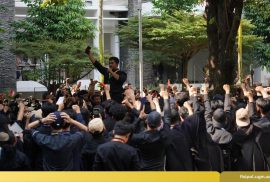Climate change is not a problem that centers on a single root cause. Collaboration and understanding are needed, as systems greatly influence their impact. Government policy is key to ensuring that this issue does not create deeper divisions between communities. Instead, good national policy in addressing climate change must be inclusive and equitable.
Patra added that, like it or not, many climate change challenges need to be prepared for. This is especially true as global support in the financial sector is beginning to shift towards this issue. However, climate action in Indonesia has grown organically within communities. This means that public awareness of climate change has already started to grow. The government must be able to formulate grassroots-based policies that can reach the smallest units of society.










